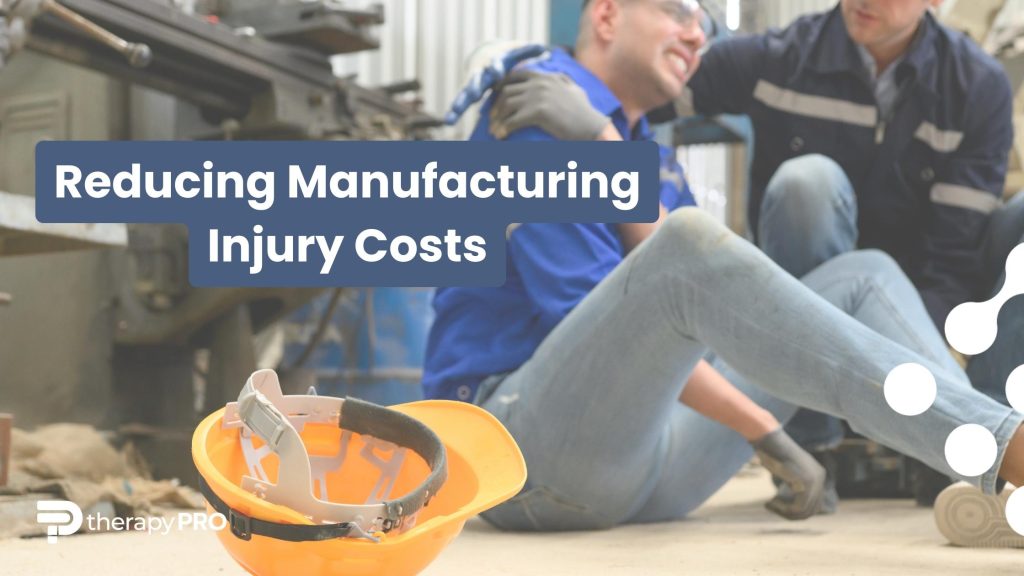Reducing Manufacturing Injury Costs
When WorkCover Psychology Support Can Help Return to Work Outcomes
In manufacturing, workplace injuries don’t just impact the person who’s hurt. They can slow production, disrupt teams, and cost organisations tens of thousands of dollars. While physical recovery plans are standard, psychological barriers after an injury are often overlooked and may extend recovery timelines by months.
Here’s what many don’t realise: physical injuries may create psychological barriers that can delay return to work long after the body has healed.
The good news? WorkCover covers psychology support at no cost to the worker or employer, once the claim is approved.
Why manufacturing injuries often create psychological barriers
Manufacturing injuries frequently involve machinery. When it does, workers may become anxious about reusing specific equipment, particularly after traumatic incidents have occurred. This can create stress responses, like avoidance behaviours, which persist beyond the resolution of physical healing.
These psychological responses are normal and manageable, but only if they’re recognised and addressed early.
The reality: Most manufacturing workers don’t know that WorkCover includes psychology support, and many employers aren’t aware of how common psychological barriers are after physical injuries.
Recognising when psychology support may help
High-risk situations where psychological barriers can develop:
- Machinery accidents or malfunctions
- Near-miss incidents with serious injury potential
- Injuries witnessed by colleagues
- Injuries during high-stress periods
- Workers with previous injuries
Early warning signs workplace health and safety officers and team managers should watch for:
- Excessive worry about prognosis or catastrophic statements about recovery
- Reluctance to engage with return-to-work planning
- Communication changes (withdrawal or increased argumentativeness)
- Avoidance behaviours that seem to exceed medical restrictions
- Worker expressing fear about returning to work or specific tasks
The solution: WorkCover psychology support
For workplace health and safety officers: When you notice these warning signs, encourage workers to seek psychology support. Early treatment can prevent concerns from becoming major barriers to return to work.
Key message for injured workers: If you’re struggling with anxiety, fear, or confidence issues after a workplace injury, psychology support is available through WorkCover. And when your claim is approved, there is no cost to you or your employer. You don’t need to suffer in silence or pay out of pocket.
How to access WorkCover psychology support
Workers can self-refer to registered WorkCover psychology providers without employer involvement required.
Following a WorkCover claim, the referral process is simple:
- Recognise the signs of psychological barriers
- Understand that support is available at no cost, when the claim is approved
- Connect with a WorkCover-approved psychologist
- Begin support to address specific concerns
Getting started with WorkCover psychology for manufacturing injuries
For workplace health and safety officers and team managers:
- Learn to recognise psychological warning signs after injuries
- Educate workers that psychology support is covered by WorkCover
- Encourage early intervention when psychological barriers are noticed
- Know that specialist providers understand manufacturing work demands
For injured workers:
- Understand that psychological responses to physical injuries are normal
- Know that support is available at no cost through WorkCover
- Seek help early rather than struggling alone
- Access specialists who understand manufacturing work environments
Don’t let psychological barriers delay your team’s recovery or leave injured workers struggling unnecessarily. Workers experiencing anxiety, avoidance, or confidence issues after a workplace injury can access psychological support through WorkCover.
Our WorkCover-approved psychologists understand the demands of manufacturing work and can provide practical, targeted support to overcome psychological barriers to return to work.
Self-referrals accepted. No upfront cost to worker or employer. No ongoing costs when the claim is approved. Quick and simple process.
Submit your WorkCover referral today.
About the Author – Therapy Pro’s psychology team
This article was developed by Therapy Pro’s team of registered psychologists.
We provide psychology services across Australia, including support funded via NDIS, WorkCover, Medicare, as well as fee-for-service.
We are committed to delivering high-quality, person-centred care through in-person and online services.
All interventions are delivered by AHPRA-registered psychologists working under nationally recognised ethical guidelines.
+++
Important notice: This information is general in nature and is not intended as personal advice. Individual responses to therapy vary. We recommend consulting with a qualified mental health professional to discuss your specific circumstances and determine the most appropriate treatment approach for your needs




